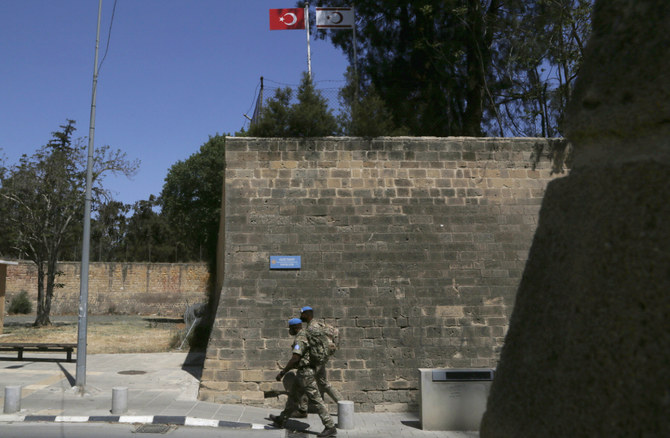
Joe Biden has called on Vladimir Putin to demand he de-escalate tensions with Ukraine amid the largest buildup of Russian forces on its borders since the annexation of Crimea.
In a phone call on Tuesday, Biden also proposed a meeting in a third country in the coming months, potentially setting up the first US-Russia presidential summit since Putin held talks with Donald Trump in Helsinki in 2018.
According to the White House, Biden pressed Putin on Russia’s military buildup, saying that he “emphasised the United States’ unwavering commitment to Ukraine’s sovereignty and territorial integrity”.
The phone call came hours after Nato’s secretary general called on Russia to halt its military buildup around Ukraine, describing it as “unjustified, unexplained and deeply concerning”. Ukraine has estimated that more than 80,000 Russian troops have massed on its border, sparking fears of an invasion.
Russian political and military leaders have blamed the United States and the military alliance, accusing them of turning Ukraine into a “powder keg” and of provoking the Russian buildup.
A Kremlin readout of the call played down Biden’s warnings on Ukraine. It omitted the two leaders’ discussion of the Russian buildup entirely, saying only that Putin discussed the “internal Ukrainian crisis” with Biden. Russia claims it is not a party to the conflict in east Ukraine although the pro-Russian separatists are widely considered to be a Moscow proxy.
The phone call with Putin is just the second of Biden’s presidency. Analysts are divided over what the goal of the Kremlin’s military buildup is, although some have seen it as a challenge to the new Biden administration and a warning not to ignore Russia’s interests.
Biden also expressed concern over Russia’s computer hacking campaigns and election interference. The Kremlin said that the two sides also discussed the war in Afghanistan, the climate crisis and negotiations over the Iranian nuclear programme.
Few details were given on the potential summit, which Biden proposed holding in the coming months with the goal of “building a stable and predictable relationship with Russia consistent with US interests”. Neither the White House nor the Kremlin said whether Putin had agreed to meet.
Biden’s outreach appears more focused on preventing a disaster than from seeking a diplomatic breakthrough with Putin. Following the call, a White House spokesperson gave a modest prognosis for relations with the Kremlin. “What we’re working toward is predictable and stable. We’re not looking for an establishment of trust as much as a predictability and stability,” the White House press secretary, Jen Psaki, told reporters.
The phone call appears designed to head off growing tensions between Russia and the west, as satellite photos have shown Russian armour and even short-range ballistic missiles being moved within just 150 miles of the border with Ukraine. Russian rhetoric has also intensified, as senior officials have said they may be forced to intervene in east Ukraine to protect Russian speakers.
Flanked by Ukraine’s foreign minister at a press conference on Tuesday morning, Nato’s Jens Stoltenberg said Russia had moved thousands of combat troops to Ukraine’s borders in “the largest massing of Russian troops since the illegal annexation of Crimea in 2014”.
The head of the western military alliance, addressing Moscow directly, added: “Russia must end this military buildup in and around Ukraine, stop its provocations and de-escalate immediately.”
Moscow said the deployments were a reaction to what it claimed were Nato plans to move troops closer to Russia’s borders in the Baltic and Black Sea regions.
Ukraine’s foreign minister, Dmytro Kuleba, had flown in for an emergency meeting with Stoltenberg to discuss the crisis, amid mounting concern among Nato members about the military manoeuvres.
Kuleba said Russia had gathered troops in three directions to the “north-east of Ukraine, and Crimea in the south and the Donbas in the east”, and accused Russia of “drastically intensifying its belligerent propaganda, which dehumanises Ukrainians and incites hatred towards Ukraine”.
If a summit between the Russian and leaders does take place, it will be far different from the madcap talks held by Putin and Trump in 2018. In a press conference following those talks, Trump ended up siding with Putin against his own FBI in his assessment of Russia’s election interference. “President Putin says it’s not Russia. I don’t see any reason why it would be,” he said then.
Biden met with Putin as vice-president in 2011, reportedly saying he shouldn’t return to the presidency and telling him: “I don’t think you have a soul.” Biden last month agreed with a journalist who asked him whether he considered Putin “a killer”. Putin responded by wishing Biden “good health”, in what many Russians saw as a reference to Biden’s advanced age.












